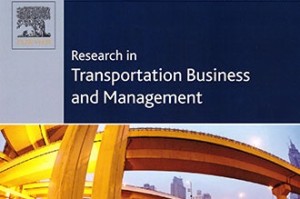 In an article included in a special volume of the scholarly journal Research in Transportation Business and Management (RTBM), revisiting port governance and port reform around the globe, PortEconomics members Mary Brooks and Thanos Pallis are joined by Kevin Cullinane to recap port governance and policy developments in 25 countries.
In an article included in a special volume of the scholarly journal Research in Transportation Business and Management (RTBM), revisiting port governance and port reform around the globe, PortEconomics members Mary Brooks and Thanos Pallis are joined by Kevin Cullinane to recap port governance and policy developments in 25 countries.
A wave of port reforms was observed around the globe in the 1990s and early 2000s. Although these port reforms were eclectic in both their objectives and the forms they took, they did share a common context in terms of a dynamic world economy characterized by a revitalized globalization of production and consumption, consequent burgeoning growth in maritime trade and, more specifically, booming demand for container transport and its supporting infrastructure provided by container ports and terminal operators. The complexity and variation in port policies, governance models and resulting outcomes proliferated across the international arena.
By 2017, the port reform timeline has moved on, with some countries having implemented no reforms at all, others having achieved significant improvements in performance and yet others rethinking what they have done.
Scholars studying port economics, management and policy in 25 different countries reflect and revisit port governance developments in a special volume of the scholarly Journal Research in Transport Business and Management.
In their article Mary, Kevin and Thanos summarise changes in national port policies with respect to devolution, regulatory reform and newly imposed governance models that have been instigated over the past decade and which have exerted a significant influence on the nature of port management.
The study summarizes how a range of countries where both radical and new first wave port reforms have been implemented, but also where port reform has continued in an incremental manner from what has gone before.
Diverse approaches to devolution and port governance are clearly present in different geographical locations. Despite these different approaches, however, the general trend still clearly exists for greater devolution, privatization or commercialization, within each country’s context and understanding of the terms.
Underpinning all such trends and approaches is the desire to govern ports in a way that makes them more profitable and efficient, and, increasingly, a way that makes them more sustainable and green.
Anyone interested to access the authors’ version of the port study, might just click the following link.
The Full list of the Articles
The full list of articles included in the special RTBM volume are:
- Revisiting port governance and port reform: A multi-country examination by Mary R. Brooks, Kevin P.B. Cullinane, Athanasios A. Pallis
- Government policies and Portuguese port governance in the period from 2005 to 2015 by Vítor Caldeirinha, J. Augusto Felício, Sandra Figueiredo da Cunha
- The governance of intermediacy: The insertion of Panama in the global liner shipping network by Jean-Paul Rodrigue
- Port governance in Korea: Revisited by Dong-Wook Song, Sung-Woo Lee
- Port governance in Taiwan: How hypocrisy helps meet aspirations of change by Po-Hsing Tseng, Nick Pilcher
- A Greek prototype of port governance by Athanasios A. Pallis, George K. Vaggelas
- Reforming public port authorities through multiple concession agreements: The case of Cyprus by Photis M. Panayides, Neophytos Lambertides, Christophoros Andreou
- How competition is driving change in port governance, strategic decision-making and government policy in the United States by Geraldine Knatz
- Port governance in the UK: Planning without policy by Jason Monios
- Dealing with multi-scalar embeddedness and institutional divergence: Evidence from the renovation of Italian port governance by Francesco Parola, Claudio Ferrari, Alessio Tei, Giovanni Satta, Enrico Musso
- Characteristics of Japanese port policy: Strategic ports and policy dilemma by Masato Shinohara
- Institutional reforms of port authorities in the Netherlands; the establishment of port development companies by Peter W. de Langen, Larissa M. van der Lugt
- From national reforms to local compromises: The evolution of France’s model for port management, 2004–2015 by Jean Debrie, Romuald Lacoste, Marion Magnan
- Port governance and policy changes in Belgium 2006–2016: A comprehensive assessment of process and impact by Eddy Van De Voorde, Patrick Verhoeven
- Lions or gazelles? The past, present and future of African port authorities: The case of East Africa by Michaël Dooms, Sheila Farrell
- 20 years of port reform in Brazil: Insights into the reform process by Cassia Bomer Galvão, Leo Tadeu Robles, Luciana Cardoso Guerise
- A new direction or stay the course? Canada’s port-specific challenges resulting from the port reform program of the 1990s by Mary R. Brooks
- Evolution of national port governance and interport competition in Chile by Gordon Wilmsmeier, Ricardo J. Sanchez
- Port governance in China since 2004: Institutional layering and the growing impact of broader policies by Theo Notteboom, Zhongzhen Yang
- The latest trend in Australian port privatisation: Drivers, processes and impacts by Peggy Shu-Ling Chen, Hilary Pateman, Quazi Sakalayen
- Port governance in Turkey: The age of the global terminal operators by Soner Esmer, Okan Duru
- Port privatisation in Sweden: Domestic realism in the face of global hype by Rickard Bergqvist, Kevin Cullinane
- Port reform in Mexico: 1993–2015 by Juan Carlos Villa
- Strategy formulation of new generation ports: A case study of Hong Kong International Terminals Ltd. (HIT) by Kenneth H.T. Wong, Eva C. Shou, Huiying Zhang, Adolf K.Y. Ng
- A systems framework for the sustainable development of a Port City: A case study of Singapore’s policies by Zengqi Xiao, Jasmine Siu Lee Lam
- International trade logistics costs in South Africa: Informing the port reform agenda by Jan Havenga, Zane Simpson, Leila Goedhals-Gerber
PortEconomics will report the contributions of the various scholars of the team within the next weeks – stay tuned!!












